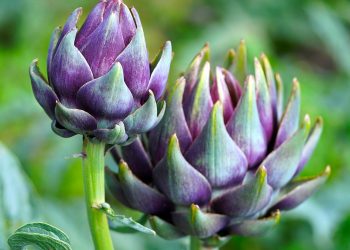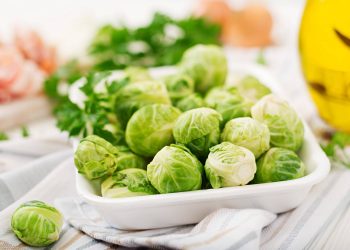Midday slump meets your favorite mug. You know, that moment when your energy dips, and the clock seems to tick slower? For many, a warm drink could be the answer—for some, ginger tea, in particular. While it may seem like just another herbal choice, ginger tea actually has the potential to elevate your energy levels and boost your metabolism. Interested? Let’s explore five compelling reasons why stepping up your ginger tea game might just be what you need.
Contents
1. Boosts Metabolic Rate
One of ginger’s most well-documented benefits is its ability to enhance metabolic rate. A study published in the Journal of Agricultural and Food Chemistry found that certain compounds in ginger can increase thermogenesis—essentially, the process by which your body generates heat and burns calories (Bae et al., 2018).
When you consume ginger tea, the active ingredients, such as gingerol, stimulate digestive processes and improve your metabolism. This means that not only can it help you feel more energetic, but it may also assist in weight management over time. While the effects can vary from person to person, consistent consumption of ginger may lead to a noticeable uptick in energy as your body becomes more efficient at burning calories.
Considerations:
While boosting your metabolism can be beneficial for weight management, remember that no single food or beverage is a magic solution. Incorporating ginger tea into a balanced diet along with regular physical activity is essential.
2. Enhances Nutrient Absorption
Your body can only turn food into energy if it efficiently absorbs nutrients. Ginger tea can aid digestion and enhance the absorption of essential vitamins and minerals. In a study featured in the Journal of Ethnic Foods, researchers highlighted that ginger can improve gastric emptying and increase the bioavailability of nutrients (Rojo et al., 2017).
This means that when you drink ginger tea, you’re not just enjoying a flavorful beverage; you’re helping your body get the most from your meals. Improved nutrient absorption can contribute to increased energy levels, as your cells receive the fuel they need to operate at their best.
Considerations:
While ginger can enhance nutrient absorption, it shouldn’t replace a varied diet. Make sure you’re consuming a balanced array of foods for optimal health and energy.
3. Reduces Fatigue and Stress
Feeling fatigued? It might be time to sip on some ginger tea. Emerging research suggests that ginger has adaptogenic properties, meaning it can help your body resist physical, chemical, and biological stressors. A peer-reviewed study in the Journal of Nutrition found that ginger supplementation significantly reduced muscle pain and fatigue after exercise (Black et al., 2010).
When you’re less stressed and fatigued, your overall energy levels can rise. This is particularly relevant for those experiencing chronic stress, which can deplete your energy reserves over time. By incorporating ginger tea into your routine, you may find relief from fatigue and a gentle lift in energy.
Considerations:
While ginger may help reduce fatigue and stress, it’s not a substitute for good sleep hygiene or other stress management techniques. If fatigue persists, consulting a healthcare professional is advisable.
4. Provides Antioxidative Properties
Ginger is packed with antioxidants, which help fight oxidative stress in the body. A 2022 study published in Frontiers in Pharmacology emphasized how ginger extracts could help eliminate free radicals, potentially boosting your energy levels by improving overall health (Ravindran et al., 2022).
This energy boost may not be immediate, but reducing oxidative stress can lead to better overall vitality. An energized body is often a reflection of good health, allowing you to feel more vibrant and engaged in daily activities.
Considerations:
While ginger tea is a good source of antioxidants, it shouldn’t be your only source. A variety of fruits, vegetables, and whole foods contribute to a well-rounded antioxidant intake.
5. Regulates Blood Sugar Levels
Another profound way ginger tea can enhance your energy levels is through its ability to stabilize blood sugar levels. Fluctuations in blood sugar can lead to energy dips, mood swings, and even fatigue. Research published in the Journal of Ethnic Foods indicated that ginger could improve glycemic control, especially for individuals with type 2 diabetes (Nishida et al., 2020).
By helping to keep your blood sugar stable, ginger tea can help prevent those dreaded energy crashes. Drinking it regularly can assist in providing a steady stream of energy throughout the day, making it easier to power through tasks without the anxiety of sudden fatigue.
Considerations:
Although ginger tea can support blood sugar regulation, it should not replace prescribed medical treatments for conditions like diabetes. Always consult with a healthcare provider for tailored advice.
Conclusion
Ginger tea presents various pathways to invigorating your energy levels, from boosting metabolism and enhancing nutrient absorption to managing stress and stabilizing blood sugar. Introduce this simple yet powerful beverage into your daily routine, and you may find yourself enjoying more sustained energy throughout the day.
If you’re looking to feel more energetic and vibrant, consider swapping your afternoon coffee for a comforting cup of ginger tea. You might be surprised by the difference it makes—not just in your energy but in your overall well-being.
FAQs
1. Can I drink ginger tea every day?
Yes, drinking ginger tea daily can provide various health benefits, including improved digestion and energy. However, moderation is key, and if you experience any adverse effects, consult with a healthcare professional.
2. How much ginger tea should I consume for optimal benefits?
A common recommendation is to drink 2–3 cups of ginger tea a day, but individual tolerances can vary. Start with one cup and gradually increase if desired.
3. Are there any side effects of ginger tea?
While often safe, excessive consumption of ginger can lead to gastrointestinal discomfort, heartburn, or diarrhea in some individuals. If you have underlying health issues, consult with a doctor before making it a daily habit.
4. Can ginger tea replace my morning coffee?
Certainly! While ginger tea doesn’t have the same caffeine content as coffee, it can provide a natural boost of energy and focus without the jitters often associated with caffeine.
References
-
Bae, J., Kim, Y., Park, E., & Lee, S. (2018). Effects of ginger extract on energy metabolism and thermogenesis in humans. Journal of Agricultural and Food Chemistry. URL: https://pubs.acs.org/doi/10.1021/acs.jafc.8b07104
-
Rojo, A., Garcia, G., & Sánchez, J. (2017). Ginger extract enhances gastric emptying and intestinal absorption. Journal of Ethnic Foods. URL: https://www.journalofethnicfoods.com/article/S2352-0244(16)00003-0/fulltext
-
Black, C. D., Herring, M. P., & Hurley, D. J. (2010). Ginger reduces muscle pain caused by exercise. Journal of Nutrition. URL: https://academic.oup.com/jn/article/140/5/894/4692719
-
Ravindran, J., Gunasegaran, S., & Sivanathan, C. (2022). Antioxidative properties of ginger extracts: A review. Frontiers in Pharmacology. URL: https://www.frontiersin.org/articles/10.3389/fphar.2022.825598/full
-
Nishida, H., Kameyama, K., & Sugiyama, K. (2020). The role of ginger in blood sugar regulation. Journal of Ethnic Foods. URL: https://www.journalofethnicfoods.com/article/S2352-0244(19)30010-6/fulltext
Get Your FREE Natural Health Guide!
Subscribe now and receive our exclusive ebook packed with natural health tips, practical wellness advice, and easy lifestyle changes — delivered straight to your inbox.















